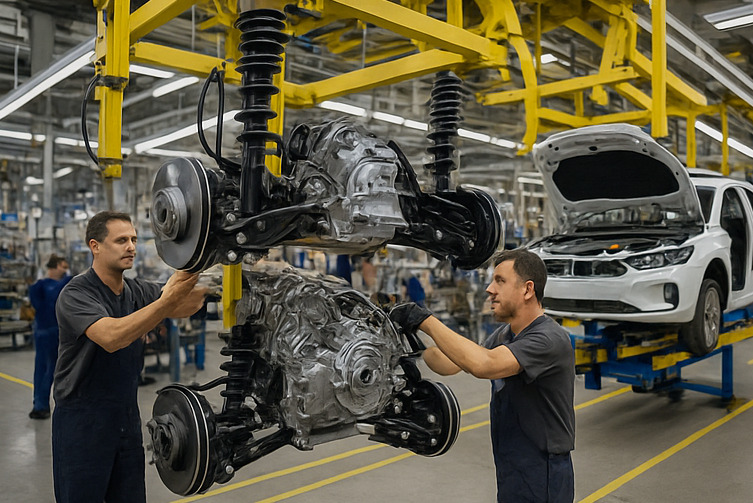
German Automotive Industry and Supplier Market Analysis: What You Need to Know
The country's motor vehicle sector plays a big role in its economy. It contributes more than 6% to GDP and employs more than 780,000 people. This industry supports not only car construction but also research, design, engineering and technology development. This German automotive industry overview highlights how deep the identity of Germany is and the automotive manufacturing economy.
The Shift towards Electric Vehicles (EVs)
Over the years, the motor vehicle industry in Germany has begun to change direction. The country is investing heavily in electric vehicle production. The government is supporting the move with new infrastructure such as subsidy, tax break and EV charging stations. Older factories are also being upgraded or rebuilt to support EV production.
Despite these efforts, the switch is not easy. Brands like Porsche have seen a decline in demand due to market changes and increasing tariffs in parts of China and Europe. Nevertheless, a change in electric is considered necessary to remain competitive in the global market.
The Importance of Automotive Suppliers in Germany
The backbone of the German car industry is its network of suppliers. These companies manufacture essential car parts - from engine and brakes to sensors and batteries. Without them, cars will not be present.
Some of the automotive suppliers Germany:
Bosch: Fuel system, electronics and driver-antic tools are known for the production of advanced car components.
Continental AG: Supplies tires, digital techniques and internal components.
ZF Friedrichshafen: a major manufacturer of transmission systems and active safety techniques.
These companies not only support the German market - they serve global vehicle manufacturers, making Germany a center for quality car components.
Challenges Facing the Industry
Even with a strong foundation, the German motor vehicle market is facing major challenges:
Rising Global Competition: Chinese EV manufacturers are rapidly expanded and provide cheap options in Europe.
High production cost: Energy prices and new environmental rules are making manufacturing more expensive.
Tech Race: Innovation in autonomous driving and EV battery development is quickly moving forward. There is a need to invest heavy to keep German companies.
This German automotive market analysis suggests that German automakers have faced pressure to stay innovative, inexpensive and durable in a rapidly changing global industry.
Growth Opportunities in the Market
There is still a lot of development capacity. As the demand for electric vehicle increases, Germany can become a pioneer in EV technology and production. The global popularity of German car brands also supports future sales. At its top, the country's experienced supplier provides a reliable network to the base parts, making it easier for the automakers to produce.
Investments in research, cleaner energy and digital technologies are expected to bring new opportunities for both manufacturers and suppliers.
Germany's motor vehicle industry is undergoing a major change. Traditional car-making is moving towards the future manufacturing on electric vehicles and smart technology. While the front road includes some bumps, strong suppliers, global trusts and innovations will place Germany on the driver's seat.
In Foxx, we continue to monitor these changes to help businesses, suppliers and investors make informed decisions in this fast growing market.


